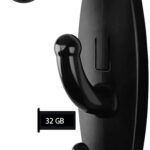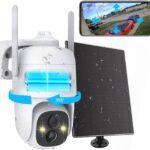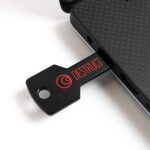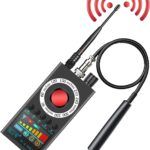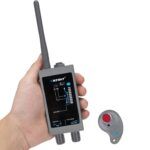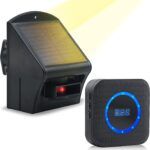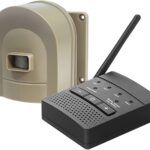- How does a vehicle GPS tracker work?
A vehicle GPS tracker works by using GPS (Global Positioning System) technology to determine the precise location of the device. The GPS receiver inside the tracker receives signals from a network of satellites in space and calculates the tracker’s position on the earth’s surface. The tracker then sends this information, along with other data such as speed and direction, to a server via cellular or satellite communication. The server processes the data and presents it to the user on a map or dashboard, allowing them to track the vehicle’s location in real-time.
Some GPS trackers also offer additional features such as geofencing, which allows the user to set up virtual boundaries and receive alerts when the vehicle crosses them, and driver behavior monitoring, which can track speed, acceleration, and braking patterns to help improve driving habits and fuel efficiency. Overall, a vehicle GPS tracker can provide valuable information about a vehicle’s location and usage, which can be useful for businesses and individuals alike.
- How accurate is a GPS tracker?
The accuracy of a GPS tracker largely depends on the quality of the device and the strength of the GPS signal. Generally, most GPS trackers have an accuracy range of 5-10 meters. However, more advanced GPS trackers can have an accuracy range of up to 1 meter. It’s important to note that the accuracy of GPS devices can be affected by various factors such as weather conditions, tall buildings, and natural obstacles. In urban areas with tall buildings and narrow streets, the accuracy of GPS trackers can be affected by signal bounce and interference. Overall, trackers using GPS provide a relatively accurate location of the vehicle, which can be useful for various purposes such as fleet management and theft prevention.
- How do I install a GPS tracker in my car?
Installing a vehicle GPS tracker typically involves finding a suitable location to place the device and connecting it to the vehicle’s power source. Some trackers may require additional wiring or a separate battery pack. The installation process varies depending on the specific tracker and the make and model of the vehicle, so it’s important to follow the instructions provided by the manufacturer. Some GPS trackers can be self-installed, while others may require professional installation. If you’re unsure about how to install a GPS locator, it’s recommended to seek assistance from a professional installer or a knowledgeable technician.
- Do I need a monthly subscription for a vehicle GPS tracker?
Most vehicle GPS trackers require a monthly subscription for their services. This is because the device uses cellular networks to transmit location data to a server, which is then accessible via a web or mobile app. The subscription fee covers the cost of cellular data usage and server maintenance, and varies depending on the service provider and the features of the GPS tracker. Some providers offer basic tracking for a lower fee, while others offer more advanced features such as real-time tracking and geo-fencing for a higher fee.
It is important to note that some vehicle trackers may have additional fees, such as activation fees or cancellation fees. It is recommended to read the terms and conditions carefully before purchasing a GPS tracker and to choose a reputable provider with transparent pricing.
For a GPS locator without a monthly subscription cost look at Onamicit GPS Tracker.
- Can a GPS tracker be used on any type of vehicle?
Vehicle GPS trackers can generally be used on any type of vehicle, as long as there is a way to connect the device to the vehicle’s power source. Most GPS trackers are designed to be compatible with a wide range of vehicles, including cars, trucks, vans, motorcycles, and even boats. However, it’s always important to check the manufacturer’s specifications to ensure that the device is compatible with your particular vehicle.
Additionally, some trackers may be better suited for certain types of vehicles or uses. For example, a GPS tracker designed for a motorcycle may have different mounting options than one designed for use with a car or truck. It’s important to consider your specific needs and the features offered by different GPS devices to determine which one is the best fit for your vehicle.
- Can a GPS tracker be hidden?
Many GPS trackers come in small sizes, making them easy to conceal in a vehicle’s interior or engine compartment. This feature is especially useful for covert tracking, such as tracking a vehicle for security or surveillance purposes. Hidden GPS trackers can also be useful for monitoring the driving habits of teenagers or employees without their knowledge. However, it’s important to note that placing a GPS tracker in someone’s vehicle without their consent is generally considered illegal, so it’s important to use them responsibly and within the confines of the law.
- Are vehicle GPS trackers legal?
In most countries, using a vehicle GPS tracker is legal as long as the owner or driver of the vehicle gives their consent. However, there may be specific laws and regulations that vary depending on the location and intended use of the tracker. It is important to check the local laws and regulations before installing any surveillance device on a vehicle. Additionally, it is important to use the GPS tracker ethically and responsibly, ensuring that it is not being used to invade someone’s privacy or for any illegal purposes. If in doubt, seek legal advice before using a tracker.
- Will a vehicle GPS tracker drain my car's battery?
A properly installed and functioning GPS tracker should not drain your car’s battery. Most of these trackers draw power from the vehicle’s electrical system, and the amount of power used is typically minimal. However, if the tracker is not installed correctly or is malfunctioning, it may draw more power than it should and potentially drain the car’s battery.
You should always choose a reputable brand and and have the locator installed by a professional to ensure it functions correctly and does not cause any issues with your vehicle’s battery. Some GPS trackers also have built-in battery-saving features that can help reduce power consumption and prevent any issues with the car’s battery.
- Can I use a GPS tracker to monitor my teenage driver?
Many GPS tracking devices designed for vehicles come with features that allow parents to monitor the driving behavior of their teenagers. These devices can be installed discreetly in the car and provide real-time location information as well as alerts for speeding, harsh braking, and other unsafe driving behaviors. Some devices also come with geofencing capabilities, which allow parents to set up virtual boundaries around specific areas and receive alerts when their teenager enters or exits those areas.
However, it’s important to have an open and honest conversation with your teenage driver before installing a GPS tracker. It’s essential to explain why you’re using it and how it can help keep them safe on the road. Additionally, it’s important to respect their privacy and only use the device for safety reasons.
- Can I use a GPS to monitor my company's vehicles?
GPS trackers can be used to monitor a company’s vehicles. With a GPS tracker installed in each vehicle, the company can keep track of the location, speed, and route of each vehicle. This information can be used to ensure that drivers are following safe driving practices and sticking to their assigned routes. Additionally, GPS can be used to monitor the usage of company vehicles to ensure that they are being used for work purposes only.
Using GPS tracking can also help companies optimize their fleet management, leading to improved efficiency and cost savings. By analyzing data on vehicle usage and performance, companies can identify areas where improvements can be made, such as reducing idle time, improving routing, or identifying vehicles that may be due for maintenance. Overall, using GPS tracking to monitor company vehicles can provide valuable insights and help improve the bottom line.
- How do I know if my vehicle has a GPS tracker installed?
If you suspect that your vehicle has a GPS tracker installed, there are several signs to look out for. First, check for any unfamiliar devices or wiring in your car’s dashboard, under the seats, or in the engine compartment. GPS trackers are usually small and discreet, so they may be difficult to spot at first glance.
You can also look for signs of tampering, such as scratches or marks around the door locks, the ignition, or other areas of the car. If you have a newer vehicle, it may already come with a built-in GPS tracker that can be accessed through the vehicle’s software or an accompanying mobile app. In this case, check the owner’s manual or contact the manufacturer to see if your vehicle has this feature. If you’re still unsure, you can take your car to a mechanic or a professional who specializes in GPS trackers to perform a thorough inspection.
You can also consider hidden bug detector devices. These gadgets are designed to detect signals and can be used to locate bugs, wireless cameras, and other surveillance devices including GPS trackers.
- Can GPS tracker interfere with electronics in my car?
Vehicle GPS trackers are designed to work without interfering with other electronics in the car. However, it’s possible for some older or poorly designed GPS trackers to cause interference with other electronics. This interference can result in poor performance or even complete failure of the other electronics.
To avoid this, it’s important to choose a reputable GPS tracker manufacturer and installer who understands how to properly install the device without causing interference. It’s also a good idea to test the GPS tracker after installation to ensure that it’s not interfering with other electronics in your vehicle.
Vehicle GPS trackers are essential for tracking the whereabouts of your vehicle, making them a must-have for anyone looking to enhance their vehicle’s security. With real-time tracking, you can know where your car is at all times, giving you peace of mind and helping you protect your investment. Plus, these trackers can be a lifesaver in case of theft or other emergencies.
Showing all 7 products:

Cooau WiFi Mini Dash Cam Recorder
$89.99-
Sale!

Onamicit Tiny Magnetic GPS Tracker (No Subscription)
$16.99 
Optimus Car GPS Tracker (OBD Plug-In)
$59.95
Optimus Vehicle GPS Tracker (Car Battery Installation)
$69.95
Optimus Vehicle GPS Tracker (Wireless)
$39.95
Tracki Tiny GPS Tracker (Worldwide Track)
$15.69
Zeerkeer Mini GPS Tracker
$66.98
Vehicle GPS trackers are useful tools that allow you to keep track of your vehicle’s whereabouts at all times. They work by using a combination of GPS technology and cellular networks to provide real-time location data that can be accessed from anywhere. These devices are easy to install and can be discreetly hidden in your vehicle, making them an effective way to monitor your vehicle’s movements and prevent theft.
In addition to tracking the location of your vehicle, GPS trackers can also provide other valuable information such as speed, route, and mileage. This data can be useful for businesses that need to monitor their fleet of vehicles and ensure that their drivers are following the most efficient routes.
These GPS trackers can also be helpful for parents who want to keep tabs on their teen driver’s whereabouts or for individuals who want to keep a record of their own driving habits. Overall, vehicle GPS trackers are a reliable and cost-effective way to monitor and protect your vehicle.
How to find a good GPS vehicle tracker:
When looking for a vehicle GPS tracker, there are several features to consider. First, you’ll want to ensure that the tracker has accurate and reliable location tracking. Look for a GPS tracker that uses multiple location technologies, such as GPS, GLONASS, and Galileo, for improved accuracy. Additionally, consider the size and installation of the tracker. Some trackers are small and discreet, while others may require professional installation.
Another important feature to consider is real-time tracking. This will allow you to track your vehicle in real-time and receive notifications if it goes outside of a designated area or exceeds a certain speed limit. Some trackers also offer geofencing, which allows you to set up virtual boundaries around certain areas and receive alerts if your vehicle enters or leaves those areas.
Other features to look for include battery life, data storage capacity, and compatibility with your smartphone or other devices. Some trackers also offer additional features, such as diagnostic monitoring of your vehicle, remote engine shut-off, and even live video streaming if paired with dash cams. It’s important to consider your specific needs and budget when choosing a vehicle GPS tracker with the right features for you.
Vehicle Trackers FAQ
You may also be interested in:
There are many reasons why you could use GPS trackers in vehicles, ranging from personal security, theft protection, employee monitoring and more. These devices are increasingly more popular and there are options available for every budget. Don’t hesitate to protect yourself!







